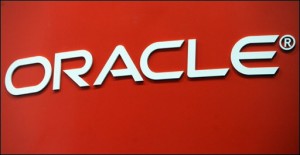Oracle®, the Technology Holding Company©
Disclosure: I am a former Oracle employee (for all of 6 months). I enjoyed my time there and have fond memories of my time there.
 Innovation is hard. Really hard.
Innovation is hard. Really hard.
Don't believe me? Just head over to amazon.com and look at their search results for 'innovation.' Everyone thinks they know what it takes to innovate, and for the entry fee of a paperback book will tell you exactly how to do it.
It seems as if everyone today wants to be the next Apple, Facebook or Google. The truth is, almost no one can. That is why the case of Oracle is so intriguing to me. They're by no means unique, but they are the poster child for corporations that realize they cannot innovate on their own but feel the need to play in that space anyway.
This article's title stated that Oracle is a holding company. I'll admit, the title really isn't all that accurate from a financial standpoint, but it does provide an interesting framework from which to view the company.
When you review the listing of companies that Oracle has purchased in the last few years then compare that to their product listing, you'll probably notice something very interesting... the one high-profile product that is internally developed during that same period of time (Fusion) is mostly something to glue all those purchased pieces together.
I find that just incredible fascinating more because of what it doesn't directly say, namely that the company can't drive innovation internally, but must purchase innovative companies to remain anywhere close to the cutting edge of technology.
The idea of a technology holding company, which is what I feel Oracle has become in spirit if not on the balance sheet, is mostly a sign of giving up on the belief in yourself as anything other than a way to make money. That's not to say making money is by any means is a bad thing, yet it shows the lack of a true sense of vision for being something great.
When it came out last week that Oracle considered purchasing RIM and Palm, I just couldn't help but chuckle by once again being proven right about the company. Why I chuckled is that Oracle was right in not buying either company, they are both failing or failed, and are truly bad investments. It wasn't that the two companies didn't or don't have worthwhile technologies, but they're simply such bad investments that they were not purchased.
Step back for a moment and look at Facebook for a moment. They recently acquired Instagram for $1bn, a company that essentially had no real strategy for making money (unless you consider Facebook buying you a strategy, then it was a phenomenal success). In essence, FB purchased a company for their technology and user base, not for something that would provide them a revenue stream now. That is a very different way to look at purchasing other companies than what Oracle does when it goes on a buying spree.
Larry Ellison himself called the purchase of RIM and Palm a "bad idea" and you know what, he's right, especially if you look at from the standpoint of a revenue boosting transaction. HP's investment in Palm was essentially a write-off and RIM has given up on the consumer market all together.
So why does this matter? It is my belief that the companies Oracle purchase go there to stagnate and die. Oracle purchases companies with great technology, milks their customer base for every cent it can and uses the profits to go buy another innovating organization and start the cycle all over again. Its not a bad strategy; its clearly working, but I have to ask, for how long?
If what I am saying was not true, you would hear about all the great new products that Oracle is creating, but you don't, you hear news about the companies they are buying. That is awesome for the founders and investors of the purchased companies, but it isn't necessarily a great thing for us as the consumer.
I look at my iPhone (or Android or even Windows Phone 7 devices) and see companies trying to build something really great. I think that the device I carry around in my pocket is more powerful and significantly cheaper than the PC that was on my desk in college. That is innovation, but its not something I see Oracle participating in when it comes to any of the markets in which they participate.
As I started out saying, innovation is clearly hard. I'm not trying to bust Oracle's chops here, but they do provide an interesting study in what happens when a company stops innovating and tries to buy it. It can be successful, if your pockets are deep enough, but I don't believe it is a path to building lasting greatness. Time will tell.